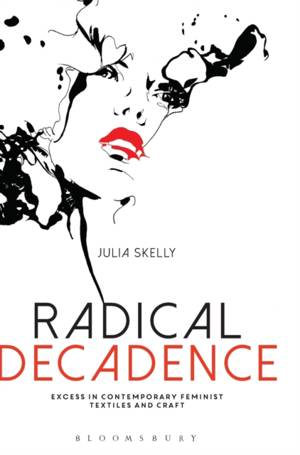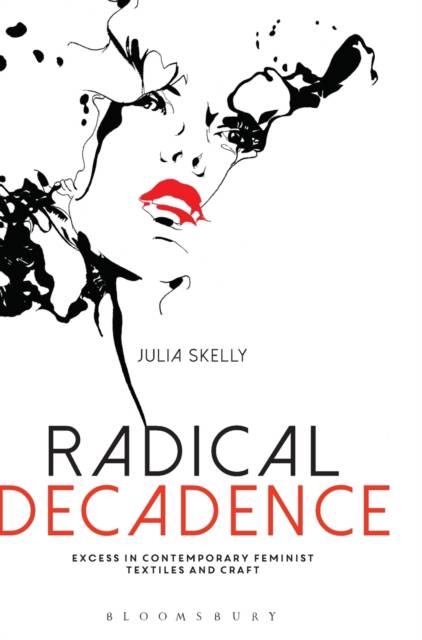
- Afhalen na 1 uur in een winkel met voorraad
- Gratis thuislevering in België vanaf € 30
- Ruim aanbod met 7 miljoen producten
- Afhalen na 1 uur in een winkel met voorraad
- Gratis thuislevering in België vanaf € 30
- Ruim aanbod met 7 miljoen producten
Zoeken
Radical Decadence
Excess in Contemporary Feminist Textiles and Craft
Julia Skelly
Hardcover | Engels
€ 203,95
+ 407 punten
Uitvoering
Omschrijving
This pioneering book explores the notion of 'radical decadence' as concept, aesthetic and lived experience, and as an analytical framework for the study of contemporary feminist textile art. Gendered discourses of decadence that perpetuate anxieties about women's power, consumption and pleasure are deconstructed through images of drug use, female sexuality and 'excessive' living, in artworks by several contemporary textile artists including Orly Cogan, Tracey Emin, Allyson Mitchell, and Rozanne Hawksley.
Perceptions of decadence are invariably bound to the negative connotations of decay and degradation, particularly with regard to the transgression of social norms related to femininity and the female body. Excessive consumption by women has historically been represented as grotesque, and until now, women's pleasure in relation to drug and alcohol use has largely gone unexamined in feminist art history and craft studies. Here, representations of female consumption, from cupcakes to alcohol and cocaine, are opened up for critical discussion. Drawing on feminist and queer theories, Julia Skelly considers portrayals of 'bad girls' in artworks that explore female sexuality - performative pieces designed to subvert and exceed feminine roles. In this provocative book, decadence is understood not as a destructive force but as a liberating aesthetic.Specificaties
Betrokkenen
- Auteur(s):
- Uitgeverij:
Inhoud
- Aantal bladzijden:
- 144
- Taal:
- Engels
Eigenschappen
- Productcode (EAN):
- 9781472569417
- Verschijningsdatum:
- 4/05/2017
- Uitvoering:
- Hardcover
- Formaat:
- Genaaid
- Afmetingen:
- 170 mm x 246 mm
- Gewicht:
- 476 g

Alleen bij Standaard Boekhandel
+ 407 punten op je klantenkaart van Standaard Boekhandel
Beoordelingen
We publiceren alleen reviews die voldoen aan de voorwaarden voor reviews. Bekijk onze voorwaarden voor reviews.








